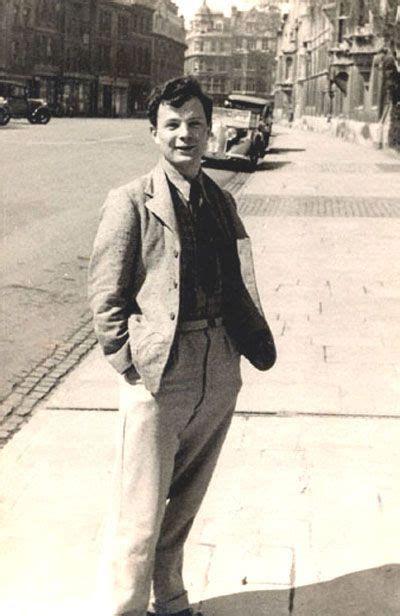A Quote by Norman O. Brown
The boundary line between self and external world bears no relation to reality; the distinction between ego and world is made by spitting out part of the inside, and swallowing in part of the outside.
Related Quotes
Pathology has made us acquainted with a great number of states in which the boundary lines between the ego and the external world become uncertain or in which they are actually drawn incorrectly. There are cases in which parts of a person's own body, even portions of his own mental life - his perceptions, thoughts and feelings -, appear alien to him and as not belonging to his ego; there are other cases in which he ascribes to the external world things that clearly originate in his own ego and that ought to be acknowledged by it.
The world's most 'primitive' people have few possessions, but they are not poor. Poverty is not a certain small amount of goods, nor is it just a relation between means and ends; above all it is a relation between people. Poverty is a social status. As such it is the invention of civilization. It has grown with civilization, at once as an invidious distinction between classes and more importantly as a tributary relation.
S&M is just a set of practices that get classified as a single category, when more accurately they are a part of much larger set of behaviors: expressions of love, and self, and play, and even art. There is no hard line between "vanilla" sex and S&M sex, or any other kind of relation between people.
Then ego goes on growing, because the society needs you as an ego, not as a Self. The Self is irrelevant for the society; your periphery is meaningful. And there are many problems. The ego can be taught and the ego can be made docile and the ego can be forced to be obedient. The ego can be made to adjust, but not the Self. The Self cannot be taught, the Self cannot be forced. The Self is intrinsically rebellious, individual. It cannot be made a part of society.
In this way the ego detaches itself from the external world. It is more correct to say: Originally the ego includes everything, later it detaches from itself the external world. The ego-feeling we are aware of now is thus only a shrunken vestige of a far more extensive feeling - a feeling which embraced the universe and expressed an inseparable connection of the ego with the external world.
Eros is an issue of boundaries. He exists because certain boundaries do. In the interval between reach and grasp, between glance and counterglance, between ‘I love you’ and ‘I love you too,’ the absent presence of desire comes alive. But the boundaries of time and glance and I love you are only aftershocks of the main, inevitable boundary that creates Eros: the boundary of flesh and self between you and me. And it is only, suddenly, at the moment when I would dissolve that boundary, I realize I never can.
In the past things were either in your head (subjective, imaginary, fantasy) or else they were part of the outside world - cold, hard, concrete materialistic reality. If you want to look at it in terms of poetry, there was surrealism and objectivism. Now there's the veil of the virtual in between. The old opposition between inner and outer doesn't quite capture it, especially as it contains elements of both. It's real but not concrete.
The power of equations lies in the philosophically difficult correspondence between mathematics, a collective creation of human minds, and an external physical reality. Equations model deep patterns in the outside world. By learning to value equations, and to read the stories they tell, we can uncover vital features of the world around us.
A perfect life is a contradiction in terms. Life itself is a state of continuous struggle between ourselves and everything outside. Every moment we are fighting actually with external nature, and if we are defeated, our life has to go. It is, for instance, a continuous struggle for food and air. If food or air fails, we die. Life is not a simple and smoothly flowing thing, but it is a compound effect. This complex struggle between something inside and the external world is what we call life. So it is clear that when this struggle ceases, there will be an end of life.





































